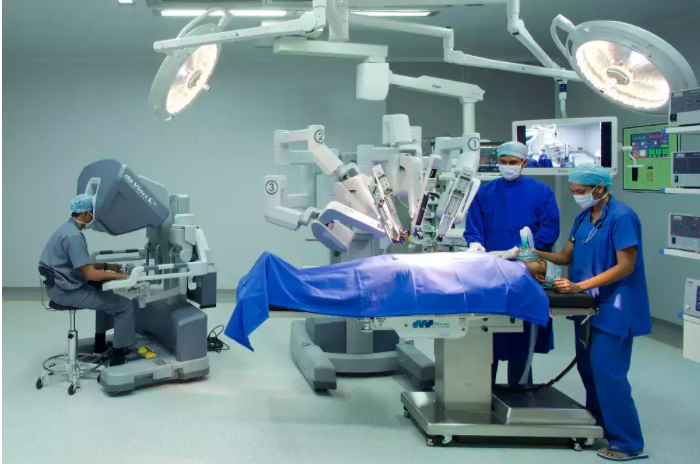 by Bidhan Chowdhury
by Bidhan Chowdhury
A lot has been written about the healthcare sector and how it has also borne the brunt of the Covid-19 pandemic, but, one area within healthcare that hasn’t received as much attention is elective or general surgeries.
For the uninitiated, elective surgeries are general surgeries that can be scheduled according to the patient’s convenience in most cases. They are generally not life-threatening but can lead to complications if not done on time. An example is gall stone surgery, where patients face reoccurring pain, there are chances of infection, and also potential emergency situations. Some of these surgeries simply lead to a better quality of life, but that does not mean that they are always optional.
That the impact on elective surgeries hasn’t been discussed more is surprising because they account for a significant share of the overall surges. Elective surgeries accounted for 40% of the estimated two crore surgeries conducted in India in the year before the pandemic. As hospitals focused their energy and resources on attending to emergency cases and Covid-19 patients, lakhs of elective surgeries (some estimates put the number at more than 5 lakh) were put off within the first couple of months of the pandemic outbreak.
The problem is not limited to India as the situation is worse in many low and middle-income countries. An estimated 31 crore surgeries are done globally each year, but half the global population cannot access the treatment they need. When surgical care is not readily available, easily treatable conditions become diseases with high fatality rates. According to a World Bank report, 14.3 crore additional surgical procedures are needed each year to save lives and prevent disability. This will require the integration of surgical services across all levels of care and massive investments in healthcare infrastructure.
Coming back to India, the biggest challenge for patients is the high cost of elective surgeries, which are nearly prohibitive for a very large chunk of the population. This, coupled with the lack of accessibility and quality healthcare pushes many patients to ignore secondary care surgeries, especially those related to Proctology, Urology, Laparoscopy, Ophthalmology, and Dental, just to name a few. Many patients also decide against going ahead with secondary care surgeries citing the risks associated with them. These can be problematic in more ways than one. In many surgical diseases, progression is a key feature and delaying or deferring the surgeries can adversely impact patient health outcomes, including higher mortality across a wide spectrum of diseases. The delays in surgery have also been shown to result in higher rates of surgical site infections, leading to even higher treatment costs.
The challenge of pre and post-surgery patient care is another crucial area that needs to be addressed at a wider level to encourage secondary care surgeries. Many people avoid undergoing surgery because it will require them to take a break from work, leading to a potential loss of income, especially in the unorganised sector.
Another bug-bear is the lack of adequate healthcare infrastructure in rural areas and the continuing existing bias of concentration of healthcare facilities in cities. Few surgeons are available in rural areas. Authorities must incentivise healthcare infrastructure in rural and semi-rural areas through schemes like viability gap funding to encourage entrepreneurs and doctors to create the required delivery mechanisms to bridge the existing gaps.
The Ayushman Bharat Pradhan Mantri Jan Arogya Yojana, an excellent initiative that enhances equity in society and promotes stability, has made quality healthcare services accessible for lakhs of people. But, focus also needs to be given to making surgeries affordable. One way of achieving this is by ensuring standalone secondary care centres take the load off tertiary care centres. Increased costs are a big challenge even for healthcare service providers, but the optimal use of healthcare infrastructure such as operation theatres and healthcare personnel, including surgeons, could help in making surgeries more affordable. Even otherwise, optimal utilisation of available healthcare resources is necessary for a resource-constrained country like India.
A vast country like ours and one with a large population simply cannot afford such a situation. It is a must to not only make elective surgeries affordable by controlling prices) but also easily accessible (by bolstering the healthcare infrastructure), which can go a long way in reducing the high disease burden. This is a challenge, and a big one, but some states like Madhya Pradesh have already taken up the challenge. The state has made a massive increase in its healthcare budget and has rolled out other initiatives to improve healthcare delivery services. This needs to be adopted in other states and at the national level to make health services, including elective surgeries, affordable and accessible.
Bidhan Chowdhury, Founder of UAE-based Medi Q Healthcare Group and TaCa Healthcare (India), is a serial entrepreneur known for his cost-effective healthcare solutions in South East Asia.
(DISCLAIMER: The views expressed are solely of the author and ETHealthworld does not necessarily subscribe to it. ETHealthworld.com shall not be responsible for any damage caused to any person / organisation directly or indirectly.)
Stay connected with us on social media platform for instant update click here to join our Twitter, & Facebook
We are now on Telegram. Click here to join our channel (@TechiUpdate) and stay updated with the latest Technology headlines.
For all the latest Health News Click Here
For the latest news and updates, follow us on Google News.
